
Sir Gawain and the Green Knight is a late 14th-century chivalric romance in Middle English alliterative verse. The author is unknown; the title was given centuries later. It is one of the best-known Arthurian stories, with its plot combining two types of folk motifs: the beheading game and the exchange of winnings. Written in stanzas of alliterative verse, each of which ends in a rhyming bob and wheel, it draws on Welsh, Irish, and English stories, as well as the French chivalric tradition. It is an important example of a chivalric romance, which typically involves a hero who goes on a quest that tests his prowess. It remains popular in modern English renderings from J. R. R. Tolkien, Simon Armitage, and others, as well as through film and stage adaptations.

Apocalyptic and post-apocalyptic fiction is a subgenre of speculative fiction in which the Earth's civilization is collapsing or has collapsed. The apocalypse event may be climatic, such as runaway climate change; astronomical, an impact event; destructive, nuclear holocaust or resource depletion; medical, a pandemic, whether natural or human-caused; end time, such as the Last Judgment, Second Coming or Ragnarök; or any other scenario in which the outcome is apocalyptic, such as a zombie apocalypse, AI takeover, technological singularity, dysgenics or alien invasion.

Gawain, also known in many other forms and spellings, is a character in Arthurian legend, in which he is King Arthur's nephew and one of the premier Knights of the Round Table. The prototype of Gawain is mentioned under the name Gwalchmei in the earliest Welsh sources. He has subsequently appeared in many Arthurian tales in Welsh, Latin, French, English, Scottish, Dutch, German, Spanish, and Italian, notably as the protagonist of the Middle English poem Sir Gawain and the Green Knight. Other works featuring Gawain as their central character include De Ortu Waluuanii, Diu Crône, Ywain and Gawain, Golagros and Gawane, Sir Gawain and the Carle of Carlisle, L'âtre périlleux, La Mule sans frein, La Vengeance Raguidel, Le Chevalier à l'épée, Le Livre d'Artus, The Awntyrs off Arthure, The Greene Knight, and The Weddynge of Syr Gawen and Dame Ragnell.

Lancelot du Lac, alternatively written as Launcelot and other variants, is a popular character in Arthurian legend's chivalric romance tradition. He is typically depicted as King Arthur's close companion and one of the greatest Knights of the Round Table, as well as a secret lover of Arthur's wife, Guinevere.

The Knights of the Round Table are the legendary knights of the fellowship of King Arthur that first appeared in the Matter of Britain literature in the mid-12th century. The Knights are a chivalric order dedicated to ensuring the peace of Arthur's kingdom following an early warring period, entrusted in later years to undergo a mystical quest for the Holy Grail. The Round Table at which they meet is a symbol of the equality of its members, who range from sovereign royals to minor nobles.

A knight-errant is a figure of medieval chivalric romance literature. The adjective errant indicates how the knight-errant would wander the land in search of adventures to prove his chivalric virtues, either in knightly duels or in some other pursuit of courtly love.
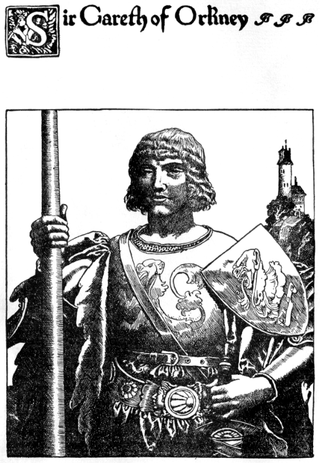
Gareth is a Knight of the Round Table in Arthurian legend. He is the youngest son of King Lot and Queen Morgause, King Arthur's half-sister, thus making him Arthur's nephew, as well as brother to Gawain, Agravain and Gaheris, and either a brother or half-brother of Mordred. Gareth is particularly notable in Le Morte d'Arthur, where one of its eight books is named after and largely dedicated to him, and in which he is also known by his nickname Beaumains.

Harsh Realm is an American science fiction television series about humans trapped inside a virtual reality simulation. It was developed by Chris Carter, creator of The X-Files and Millennium, and began airing on the Fox Network on October 8, 1999. The series fared poorly in the ratings and was removed from the schedule after three of its nine episodes had aired. The remaining six episodes premiered on the FX Network. Repeats of the series began airing Fall 2007 on CBC Country Canada.

Gaheris is a Knight of the Round Table in the chivalric romance tradition of Arthurian legend. A nephew of King Arthur, Gaheris is the third son of Arthur's sister or half-sister Morgause and her husband Lot, King of Orkney and Lothian. He is the younger brother of Gawain and Agravain, the older brother of Gareth, and half-brother of Mordred. His figure may have been originally derived from that of a brother of Gawain in the early Welsh tradition and then later split into a separate character of another brother, today best known as Gareth. German poetry also described him as Gawain's cousin instead of brother.
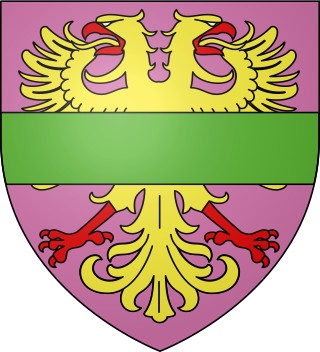
Agravain is a Knight of the Round Table in Arthurian legend, whose first known appearance is in the works of Chrétien de Troyes. He is the second eldest son of King Lot of Orkney with one of King Arthur's sisters known as Anna or Morgause, thus nephew of King Arthur, and brother to Sir Gawain, Gaheris, and Gareth, as well as half-brother to Mordred. Agravain secretly makes attempts on the life of his hated brother Gaheris starting in the Vulgate Cycle, participates in the slayings of Lamorak and Palamedes in the Post-Vulgate Cycle, and murders Dinadan in the Prose Tristan. In the French prose cycle tradition included in Thomas Malory's Le Morte d'Arthur, together with Mordred, he then plays a leading role by exposing his aunt Guinevere's affair with Lancelot, which leads to his death at Lancelot's hand.
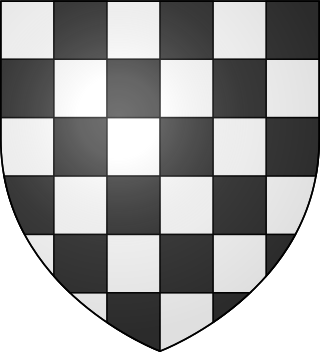
Palamedes is a Knight of the Round Table in the Arthurian legend. He is a Middle Eastern pagan who converts to Christianity later in his life, and his unrequited love for Iseult brings him into frequent conflict with Tristan. Palamedes' father King Esclabor and brothers Safir and Segwarides also join the Round Table. The romance Palamedes was named after him.
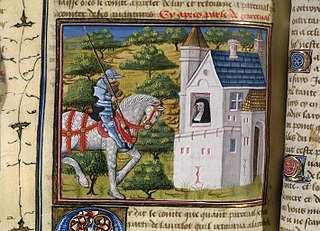
Perceval, the Story of the Grail is the unfinished fifth verse romance by Chrétien de Troyes, written by him in Old French in the late 12th century. Later authors added 54,000 more lines to the original 9,000 in what are known collectively as the Four Continuations, as well as other related texts. Perceval is the earliest recorded account of what was to become the Quest for the Holy Grail but describes only a golden grail in the central scene, does not call it "holy" and treats a lance, appearing at the same time, as equally significant. Besides the eponymous tale of the grail and the young knight Perceval, the poem and its continuations also tell of the adventures of Gawain and some other knights of King Arthur.

In Arthurian legend, Ywain, also known as Yvain and Owain among other spellings, is a Knight of the Round Table. Tradition often portrays him as the son of King Urien of Gorre and of either the enchantress Modron or the sorceress Morgan le Fay. The historical Owain mab Urien, the basis of the literary character, ruled as the king of Rheged in Britain during the late-6th century.
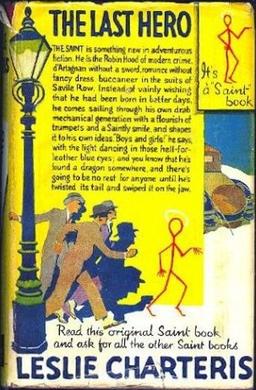
The Last Hero is the title of a thriller novel by Leslie Charteris that was first published in the United Kingdom in May 1930 by Hodder and Stoughton and in the United States in November 1930 by The Crime Club. The story initially appeared in The Thriller, a British magazine, in 1929. Because of this somewhat convoluted publishing history, The Last Hero is occasionally cited as the second volume of adventures featuring the crime-busting antihero Simon Templar, alias The Saint, predating Enter the Saint. In fact, according to Charteris himself, it was the third book of the series. This is supported by references to the events of Enter the Saint within the novel.

Gawayn is a French-Italian-Canadian animated television series created and designed by Jan Van Rijsselberge. It is produced by Alphanim. The title of the show refers to King Arthur's nephew Gawain. The series has also been shown on the Starz Kids & Family cable network.

The Pier Falls is the first short story collection by Mark Haddon published in 2016 and contains nine stories generally disturbing and dark. Mark Haddon is best known for his prize-winning first novel The Curious Incident of the Dog in the Night-Time.

Sir Gawain and the Green Knight is a British children's novel written by Michael Morpurgo, and illustrated by Michael Foreman. It was originally published in the United Kingdom by Walker Books, and released in October 2004. The book is largely a translation and condensed version of the late 14th century Arthurian romance, Sir Gawain and the Green Knight.

















